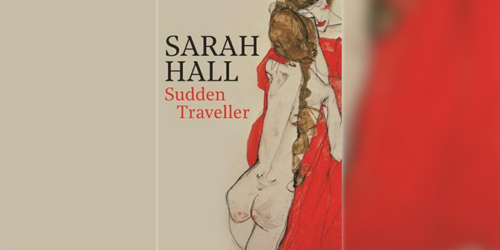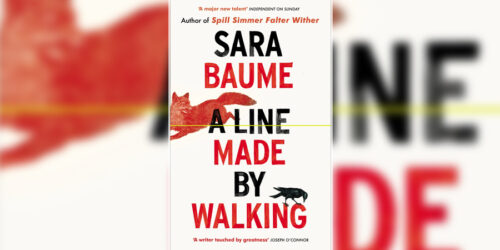
Over August and September our NCW Book Club is Sudden Traveller by Sarah Hall. We hope you’ll join us in reading the book and joining the conversation – find out more about all the ways that you can get involved.
Sudden Traveller is Sarah Hall’s third collection of short stories, and includes the BBC National Short Story Award-winning ‘The Grotesques’ and six other stories. All of them showcase Hall’s signature precise, lush and unexpected use of language, and themes of life, death and transformation.
Here we share a writing exercise inspired by Sarah Hall’s rich use of imagery and rhythm, with the aim of experimenting with style in your fiction writing. While this exercise is written with fiction in mind, it might also be helpful for writers of poetry and non-fiction.
For this exercise, you will need a short piece of writing that you have already written as a first draft. If you don’t have a piece of writing to use, why not try one of our previous Book Club writing exercises, a timed free write, or take a look at our free resources for writers. If you want to try your hand at a short story, why not take a look at these guides to getting started by Lynne Bryan and Eliza Robertson.
Let us know how you get on over on our Discord community. Happy writing!
Experimenting with style
1. Look through Sudden Traveller for a paragraph that particularly strikes you, and think about what you appreciate about it. You might like to look at the imagery, the language choices, sentence length and structure, or the content. Make a list of the features you find to be particularly effective or interesting – try and aim for at least five. Below is an example list, drawing on a paragraph from ‘Who Pays?’:
-
- Pastoral imagery of animals, children, landscapes
- Negative sentences – something is not happening
- Group of characters, rather than a single protagonist
- Begins with a question and moves onto a longer sentence listing speculations
- Shorter, staccato sentence fragments near the beginning, middle and end of paragraph
2. Turn to your own piece of writing and select a paragraph to work with. Make sure the paragraph is long enough to give you enough room to experiment, but isn’t too long to become unmanageable.
3. Select one of the features or techniques from your list to work with, and rewrite your own paragraph according to this principle. For example, I might choose ‘shorter, staccato sentence fragments’ from the list above, and rewrite my paragraph in this way, either in places or even entirely!
4. Read back over the results of your first experiment. What works, and what doesn’t? You might like to underline or highlight the phrases or sentences you find effective for future reference.
5. Try another of the techniques from your list on the same paragraph, and see what effects it gives. Keep notes about what you like and why. Some techniques will be easier to work with than others, so don’t worry if something really doesn’t work, just move onto the next one.
6. Once you’ve tried rewriting your paragraph using a few of the techniques on your list, look back at the list of the phrases or sentences that worked well. Can you combine these successful elements into a new version of your original paragraph? How does this compare to the original? Does the variation in style help or confuse the intention behind the paragraph? Are there any techniques that you might like to use again, and try on another, different paragraph of your writing? Keep exploring in this way until you find the combinations that work well for your own story and style. Happy writing!
Photo by Mikhail Nilov from Pexels
You may also like...
Sudden Traveller: Questions for readers
Join us in reading Sudden Traveller by Sarah Hall

6th September 2021
NCW Book Club: Sudden Traveller by Sarah Hall
Join us and share your passion for reading!

11th August 2021
A Line Made by Walking – questions and activities for readers
Sara Baume’s Goldsmiths Prize-shortlisted novel is this month’s NCW Virtual Book Club read

15th May 2020






